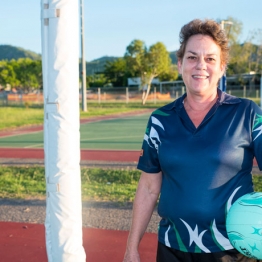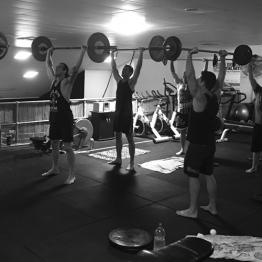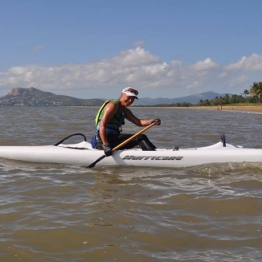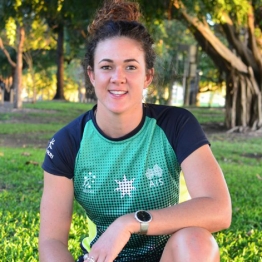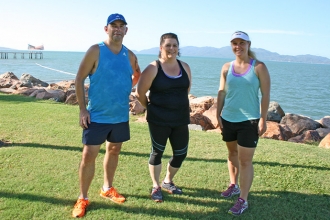TheGo asks our local, qualified and respected nutritionists a question that has been puzzling you. This time it’s about the role of caffeine in training and competing — whether it can give you that edge, and what you need to be mindful of.
If you have a food query for our expert panel to answer, please email [email protected].

Mitch Smith – Health Management
There’s no doubt that when it comes to coffee, just about every person in the world enjoys the rich and heart starting taste. But — if you’re an athlete — caffeine can be a performance enhancer and is listed in the ‘Level A’ evidence category on the AIS supplement ranking system.
There has been significant research into caffeine and performance and what once was listed on the restricted list for the World Anti-Doping Agency (WADA), is now perfectly legal. Caffeine in as little as 1-3mg/kg (equivalent to one-to-two cups of coffee) is shown to reduce the level of perceived exertion (RPE). Meaning, you can compete harder for longer without feeling like you are fatiguing.
Best consumption times vary depending on your sport, as it can take 30 minutes to feel the full effect. For an endurance athlete, I recommend consuming caffeine just after you ease into your race, as your nervous energy at the start line combined with caffeine may not be a good mix.
Caffeine also has a relatively long half-life, meaning it remains effective for up to five hours. An initial 3mg/kg dose, followed up by a ‘top-up’ 1mg dose two hours later appears to be the most effective strategy. Caffeine can be found in sport gels, coke, coffee, tea, cocoa and no-doz tablets.
Before implementing caffeine, it is best to contact your local accredited sports dietitian for some individual advice, as everyone is different.
About Mitch Smith
Health Management
As an accredited dietitian and accredited sports dietitian; it’s Mitch’s mission to debunk as many nutrition myths as possible. He works with elite professional athletes from a range of sports such as triathlon, body building and football, as well as the Cairns Taipans NBL team (don’t hold that against him!). Mitch has a passion for helping men lose weight and get fit and healthy. He practises what he preaches and translates complicated nutritional jargon into easy-to-understand advice. Mitch has just completed his first Half Ironman in Cairns.

Emily Madden – Compleat Nutrition
Caffeine is one of the best-tested ergogenic aids (substances, devices or practices that enhance an individual’s energy use, production or recovery and heightened alertness). Athletes often consume coffee before training, either as part of their normal social and dietary patterns, or as an intentional ergogenic aid.
It was once thought that coffee and other caffeinated beverages could limited performance due to dehydration factors, however studies have shown that these beverages do still count towards fluid needs – particularly if you drink them on a daily basis.
The effects of quantity, timing and sources of caffeine on exercise performance continue to be researched. Nutrition is a relatively new science and laboratory settings are vastly different to ‘real world’ scenarios, so athletes may find it challenging to apply these results.
Studies have identified a 3-10% average enhancement in performance with small doses (1-3 mg/kg) in endurance exercise and noticed more benefits in athletes who rarely consume coffee, as they are not tolerant to the stimulant effects.
The effects of caffeine differ across individuals – some are non-responders and others experience increases in heart rate, headaches and impaired sleep – which can essentially impair performance; especially if recovery is significant for multi-day sports.
My recommendation is to experiment in training if caffeinated options are right for you. Trial your options in order to identify quantities (if any at all) work best for your body and overall performance. Perhaps more sleep could be better energizer for low energy athletes or weekend warriors.
About Emily Madden
Compleat Nutrition
Emily holds a Bachelor of Nutrition & Dietetics from the University of the Sunshine Coast and is an accredited practising dietitian/nutritionist with the Dietitians Association of Australia. She is currently studying to become a sports dietitian with Sports Dietitians Australia (SDA). Emily says the reason why she loves being a dietitian is simple: “At the end of a day, driving home and knowing that I have assisted someone in improving their long-term health and reducing their risk of chronic disease, is very fulfilling and rewarding to me”.

Leanne Scott – Pure Core Nourishment
There are as many studies disputing the dehydrating effects of caffeine as there are claiming otherwise. The key is to safeguard yourself through adequate hydration by replacing every one cup of potential diuretic, like coffee, for 1.5 cups of good ‘ole H2O.
In small amounts, caffeine usually isn’t a problem for most people. And certainly the positive effects of utilising caffeine during training have been documented repeatedly. Coffee has been found to have numerous anti-oxidant properties, as good quality sources are rich in polyphenols.
The problem is that many people, over time, don’t consume a small amount of caffeine, but instead consume a lot of it each day and — when it comes to caffeine use in training — the sources are often highly questionable. This large consumption can have a huge impact on one’s adrenal and thyroid health, as well as overall health long term. If you are repeatedly starting your day with the caffeine equivalent of a sabre-toothed tiger, sending your adrenals into overdrive, there will always be a price to pay.
My recommendation is to allow bio-individuality and good sourcing to lead our consumption of coffee. The first question should always be how much of your energy levels are being created by caffeine? Try a day without and see if you find yourself in struggle town — your adrenal and thyroid function may be affected by caffeine more than you know.
About Leanne Scott
Pure Core Nourishment
Leanne Scott is a certified nutritional therapy practitioner and founder of Pure Core Nourishment, a functional nutritional therapy service providing root cause resolution strategies to support clients in achieving optimal health. Her team of practitioners offer individual health and nutrition coaching to clients nationally using in-house and laboratory functional testing to investigate the underlying cause of imbalances and dysfunction. Leanne is an instructor for the Nutritional Therapy Association Australia, the only functionally-based nutritional training program in the country.
The information provided is general in nature and should not substitute any health or medical advice. Please consult a qualified professional to assist with any specific conditions or queries.

